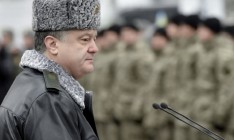Economy
signalsThe Ministry of Economy of Ukraine downgraded its macroeconomic forecast for 2015

In 2015 the government forecasts that the Ukrainian economy will grow by 0.3% and in the best case scenario – by 2%. This forecast was prepared by the Ministry of Economic Development and Trade (MEDT) and was submitted to the Cabinet’s Committee for Social and Economic Development and International Cooperation. Depending on the results of its review one of two scenarios will be factored into the calculation of the national budget for 2015, the first draft of which shall be submitted to the parliament by September 15. This means that if the forecast is not justified, the National Treasury will repeatedly face the problem of filling its coffers next year.
The new forecasts of the MEDT are more realistic as the previous were virtually cut off from reality. In May, the agency expected that in 2015 the economy would grow by at least 1.7% and in the most optimistic scenario – by 3.5%. However, the military conflict in the east of the country has led to adjustments and even among the updated forecasts of the government, only one – the more negative – now seems to be most likely, judging by the forecasts of Ukrainian and international experts.
New horizons
Protracted military conflict in the east was the factor that forced the government to revise its expectations. The current forecast of the ministry is based on assumptions that the conflict will end within the next few months. “It is clear that for any economic growth the conflict has to end. We will have to deal with different economic forecasts in case the conflict does not come to an end,” Minister of Economic Development and Trade Pavlo Sheremeta explained the calculations. At the same time, it is assumed that the economy in 2014 will not sink below 6–7%, says Senior Analyst at the International Center for Policy Studies Oleksandr Zholud.
As a reminder, based on the results of its mission to Kyiv in July the IMF downgraded the outlook for the decline of the Ukrainian economy this year from 5% to 6.5%. “This conflict is increasing the pressure on the program and the list of the main elements of the system of macroeconomic indicators,” said the Head of the IMF mission in Ukraine Nikolay Gueorguiev. In this case, the longer the conflict lasts the stronger the economic decline will be this year and the higher its growth in the next year will be due to the low comparison base.
However, with such a forecast for the current year, the forecast for the next year could have been higher, says Zholud. Thus, according to calculations of Director of the Analysis and Research Department at Raiffeisen Bank Aval Dmytro Solohub, if the active phase of the conflict ends soon, in 2014 the economy will shrink by 7% and in 2015 it will grow by 1.5%. According to Zholud’s forecast, if the decline in economic growth in 2014 is 7%, next year the growth will be 3%.
More restrained assessments from the government are related to the fact that the ministry does not have high hopes for intensification of foreign trade, in spite of the signed though not yet ratified Association Agreement with the European Union stipulating the creation of the free trade zone (FTZ). Back in May the ministry expected to increase exports of goods and services by at least 4.9% and in the event of more active exploration of foreign markets – by 7%. Now the pessimistic forecasts have turned into new optimistic estimates (4.3%) and expansion of export by only 2.4%. “The MEDT fears continuation of the trade war with Russia next year,” says Zholud. In the short term prospect the creation of the free trade zone with the EU, according to his estimates, would increase domestic exports by less than US $1 bn (approximately 1.5%) and, therefore, would not compensate for the loss of the Russian market, which accounts for 20% of exports.
Final winner
Expert forecasts are quite diverse due to the high level of uncertainty. On this background, many forecasts of the MEDT appear rather encouraging. In August two international rating agencies – Standard & Poor’s and Fitch Ratings – issued a zero forecast for the Ukrainian economy for 2015. Unlike the government, they also consider the risk of Kyiv’s continuing cooperation with international organizations, in particular the IMF. “According to the survey, the next (parliamentary) elections in October could lead to strong parliamentary support for the program (cooperation with the IMF - Capital). However, economic and political risks could derail its implementation,” say analysts at Fitch.
In addition, we should not rule out the possibility of protraction of the military conflict for more than a few months and its continuation in 2015. Based on estimates of Director of the Analytical Department at Investment Capital Ukraine Oleksandr Valchyshyn, in this case there will be no recovery next year and it will be postponed until 2016. Instead, the economy will shrink by another 1.9% in addition to the 6.5% recession in 2014. If, however, the conflict grows into a full-fledged war against Russia, Ukraine’s economy will collapse: in 2014 – 2015 actual economic contraction will be 20–30%, says the economist, and human resources and capital will be used for defense of the country.






 of the agreement of syndication with Financial Times Limited are strictly prohibited. Use of materials which refers to France-Presse, Reuters, Interfax-Ukraine, Ukrainian News, UNIAN agencies is strictly prohibited. Materials marked
of the agreement of syndication with Financial Times Limited are strictly prohibited. Use of materials which refers to France-Presse, Reuters, Interfax-Ukraine, Ukrainian News, UNIAN agencies is strictly prohibited. Materials marked  are published as advertisements.
are published as advertisements.